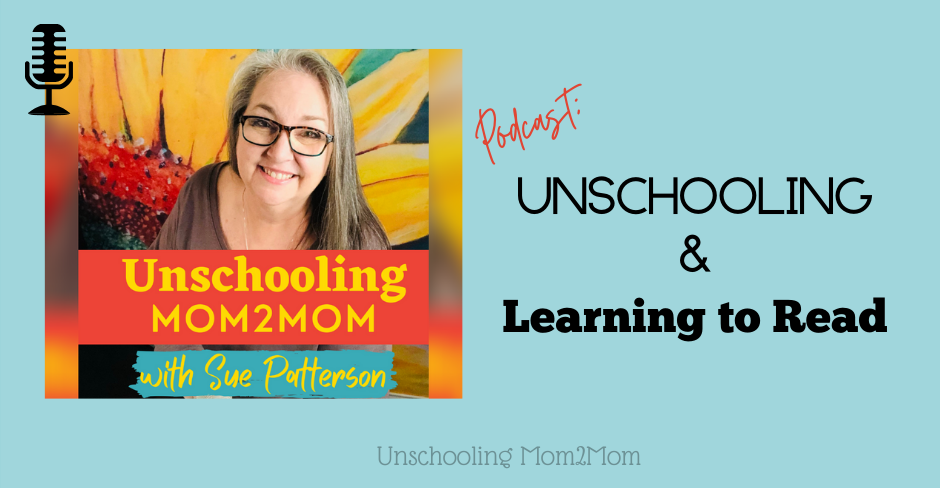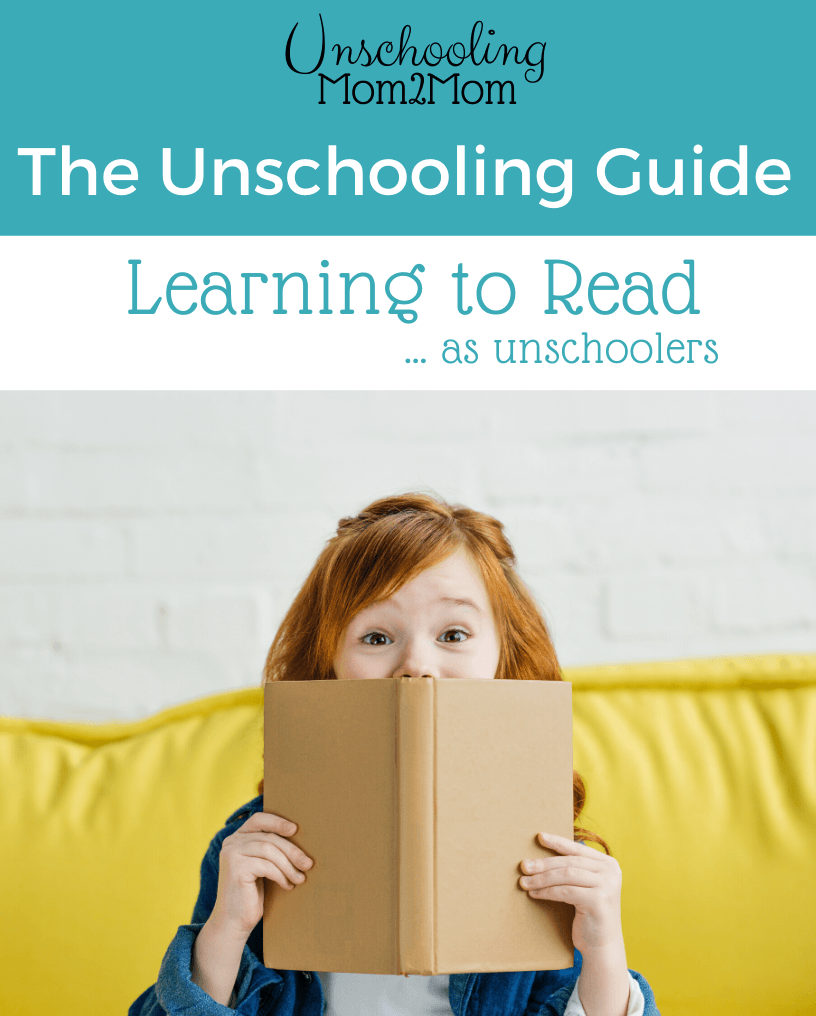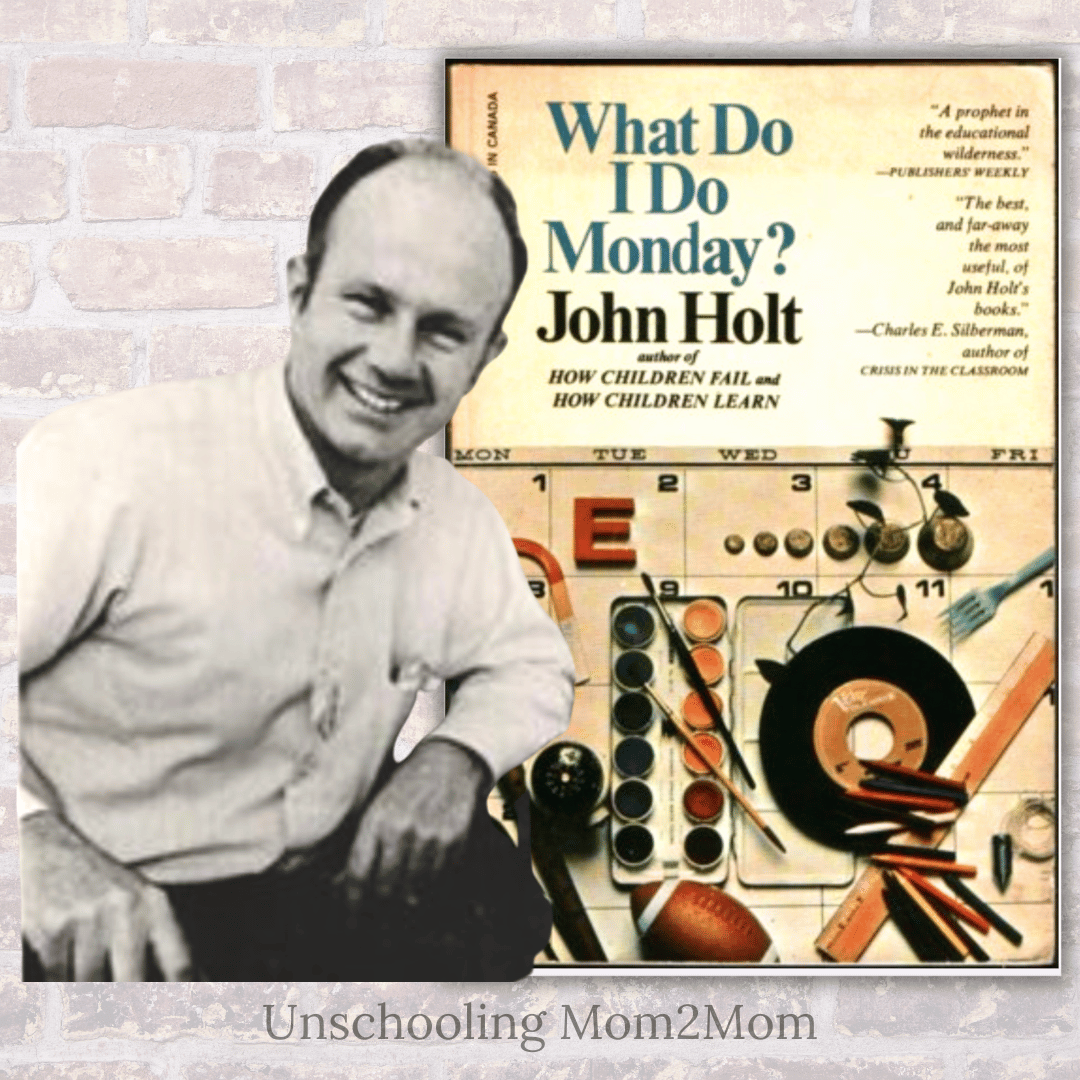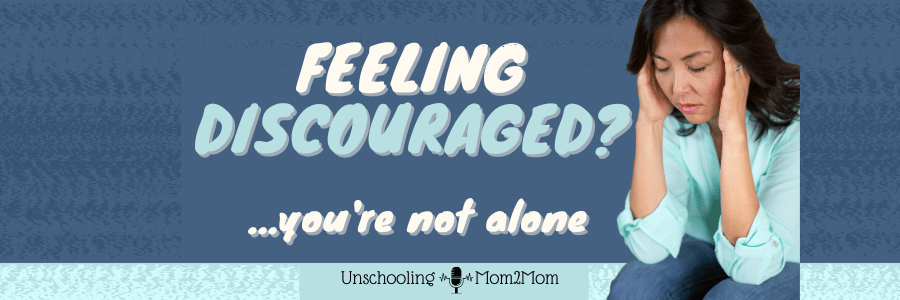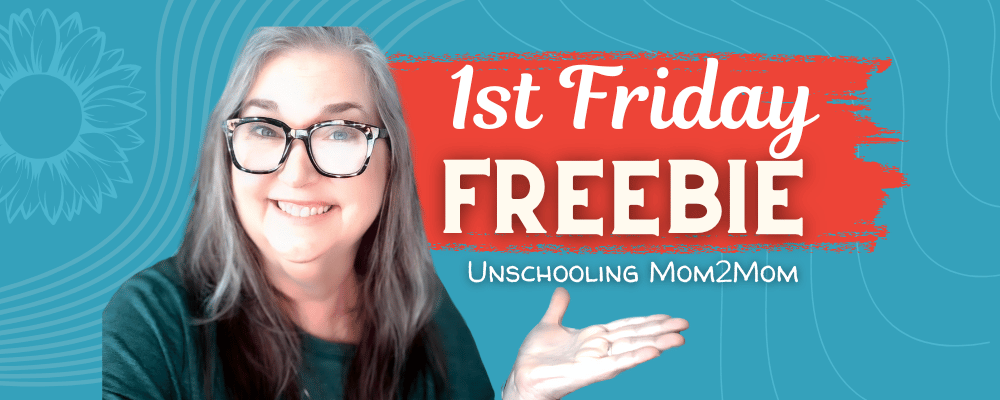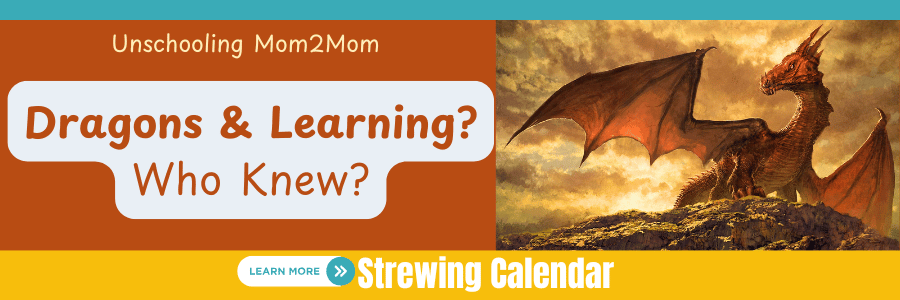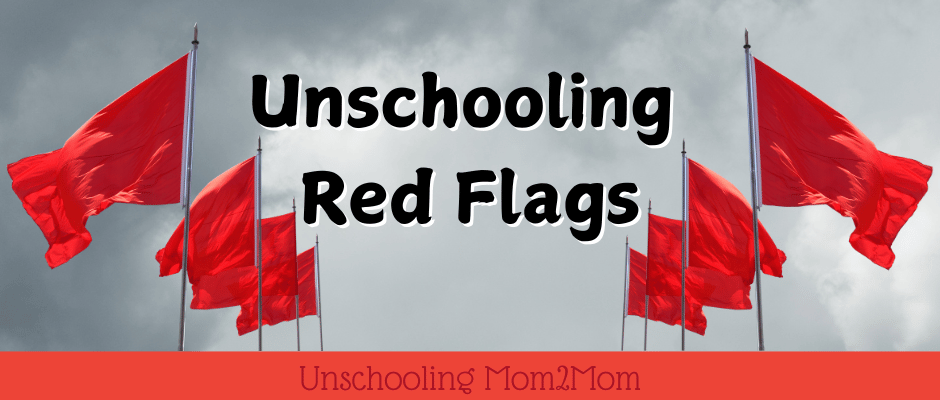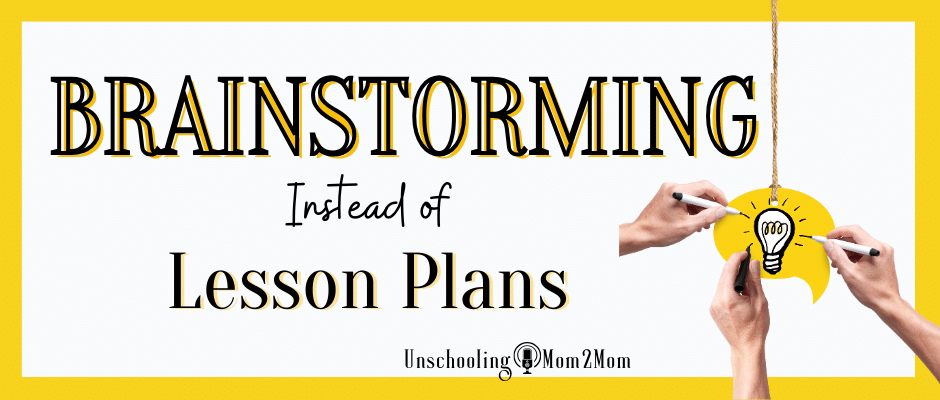By Sue Patterson
•
January 14, 2025
Unschooling Red Flags January Signals You Shouldn’t Ignore Quite a few people didn’t send their kids back to school after the holiday break! For some, this is brand new. Fall didn’t go well and they’re just going to sit this one out. I get that. Others are continuing with what they’ve been doing. They weren’t in school last semester and they’re not going this semester either. And then some - a lot of you, from what I can tell - are inching more toward unschooling. Maybe you tried a modified homeschooling effort before the holidays, but it wasn’t great. Today I want to talk about Red Flags. And I want to encourage you not to ignore them! Ok! Whether you’re just here for a little inspiration (your weekly unschooling peptalk!) or it’s all new and you’re kinda nervous - I’m glad you’re here! I’m Sue Patterson, your host here on these Unschooling Mom2Mom podcasts. My kids are all grown - all in their 30s now - and I’m circling back to let you know that unschooling really does work. Door won’t close because you choose this unconventional path. You may have questions or worries - and that’s what I try to tackle here in the podcast. And then if you want to dive deeper or get more support, I have courses, and guides, ebooks and calendars. I do private coaching and have a FABULOUS membership group where you can talk with other parents on this path too. I’ll put links to all of this in the notes for you. We all go through different phases when we’re on this unschooling journey. Some are harder, some are easier. It’s one of the reasons I do this podcast. I want you to know that it’s worth it. It’s worth plowing through the confusion or even the criticism. Maybe your kids aren’t acting the way you thought they would. It’s a process for them too, you know. I always tell my membership group that parents have to undo all that schooled conditioning, all those ideas of what’s legit learning and what’s not, all those People Pleasing traits we picked up along the way. And the kids… they have to figure out how to handle all this freedom. And, let’s face it. We’re all human. And most of us, don’t get things right on the first pass. We inch along, a few steps forward, a few steps back… but when we stay with it, we make progress. So that’s what I want to help you do now. It’s January. A New Year. And a few of the questions are popping up: Especially, How are they learning what they need to know? It’s a bit of a loaded question… because sometimes, when we ask this, we already have a pre-set idea of what THINK they need to know. The Basics, right? Or some particular subject? And then, interestingly, we seem to move the goalposts as the kids master these things. Like, now they can read, but can they write? Or now they can divide up their cookies evenly, but what about their times tables… or even Algebra? Because then, as they get into the teen years, we have new goals, right? As I was talking on this week’s coaching call in my membership group, I was mentioning Red Flags. Because even if we have been unschooling a while, these little red flags pop up. Like “Are they learning enough?” “Are they behind other kids their age?” Am I Doing enough?” These are examples of red flags for you. It’s not the checkered flag that’s giving you the signal to push more on your kid or up the ante a little, or Go Go Go!. It’s your red flag telling you something is off. Truth is, you already know that. You feel it. It’s your nudge to do a little more deschooling. Or at LEAST bring these worries out into the open so you can look at them clearly. Where DO these fears come from? Are they based in facts or based in those feelings of familiarity? Because familiarity does not necessarily mean Truth. It just means you’ve heard it or thought it a lot - often enough that it FEELS familiar. But it really may not be the truth. That’s why shining the light to see - do I feel defensive about it? Justified? Have I thought it through with this unschooling lens, so to speak? Could they learn it later? Is the timing truly significant? Do others learn it later and they turn out ok? That’s why it helps to have a community of Unschoolers to bounce these ideas around with. You MAY stick with the original idea - but it will be deliberate and intentional. And if you’re only around mainstream people or traditional homeschoolers, it’s very possible that they’ll just reinforce the fear because THEY’d prefer that you get back into the conforming mode. They have a lot of reasons to do this - and it’s not always because it’s what’s best for YOUR child. That’s why it helps to strengthen your ideas about all of this. You don’t want to just blow whichever way the strongest wind blows. You want to make good solid choices that fit YOUR child. What would some other red flags be? If you are either feeling like my kid's not motivated, my kid's not doing anything, my kid doesn’t know math - or history or science… That's a red flag. If you think, I'm overwhelmed. Why are they asking so much of me? Nobody appreciates me. I’m feeling disengaged. That's a red flag. If you are thinking, the neighbor's kid is National Honor Society and my kid doesn't even know how to set up a division problem. Or, we just need more structure, this is too chaotic. More red flags. So what are yours? They’re not insurmountable. And, actually, Red Flags are helpful. They let you know what you need to work on. They’re your guideposts for what you need to tackle next. Identifying them is the first step. You can do it in a DIY way - Identify the issues that are your Red Flags, and then search the podcasts or the YouTube playlists for these topics. When you go to the blog associated with it - or even the descriptions for those audios or videos, I have additional resources linked that can help you dive deeper. If DIY isn’t really your think, and you’d like a little more help so you can move through this more quickly, I help parents do this in the Creating Confidence Membership group - and I have a lot of tools to help with this. You can always join us. And remember, podcast listeners and YouTUbe subscribers don’t have to pay the sign up fee. Just month-by-month. I’ll link to that too, because it may be a good time for you to get more help. I think I know a lot of the red flags, because I've probably had them all. Or I've certainly seen them all. I've definitely seen a variety of ways people can red flag themselves into a darn near panic attack. So don’t look away. They usually don’t resolve themselves and you deserve to have kinder voices in your head. If yours is particularly obnoxious, it’s important to look closely at the specifics. This will be the only way to know if the voices are right, or just nagging. Maybe it’s People Pleasing or Perfectionist traits that you need to dismantle. It’s important to do this, because it’s going to prevent you from having any Joy or enjoyment in these adventures. But also because your kids are watching how you cope… you may have removed them from the school setting, but did you bring home some of these attitudes YOU learned in school about performance and measuring or comparing, criticism and disappointment? Let’s get this out of the equation so you can assess the situation more accurately. So when you have a lot of fears popping up, see them as the red flags that they are. And take some Steps to work through them. Think about whether you really believe what you’re hearing, or is it someone else’s take on things? Can you think of any examples where this thought isn’t true? Specific examples. Then it’s time to do a little rewiring to stop that thought process. Do something that will interrupt the flow. Go for a walk outside. Listen to some music. Put on some headphones. These kinds of activities can stop you from spiraling into more negative self-talk. I have a lot more ideas as well as examples of Red Flags in the membership group - if this feels like something you’d like to work on. There are also 2 Guides that might be helpful: One is called “Am I Doing Enough” and the other is “Deschooling.” Both really good options. They’re still available in the shop for a couple more months, but they’re always in the Membership resources. So... Red Flags. Let’s learn to look for them. And make some changes so we don’t have to live with these worries. Wouldn’t it be nice to stop all the second-guessing? I remember that phase so well! Feel free to let me know how you’re doing with this over in the Facebook Group. I’ll post the link to this podcast and we can talk about it there! Tell me what YOUR Red Flags are and how you’re working through them. You can do this. I’m over here rooting for you! So learn more about unschooling and deschooling, get the support you need -including self-care, and, most importantly, connect with your kids! Have a great week and I’ll be back to talk with you again soon.

